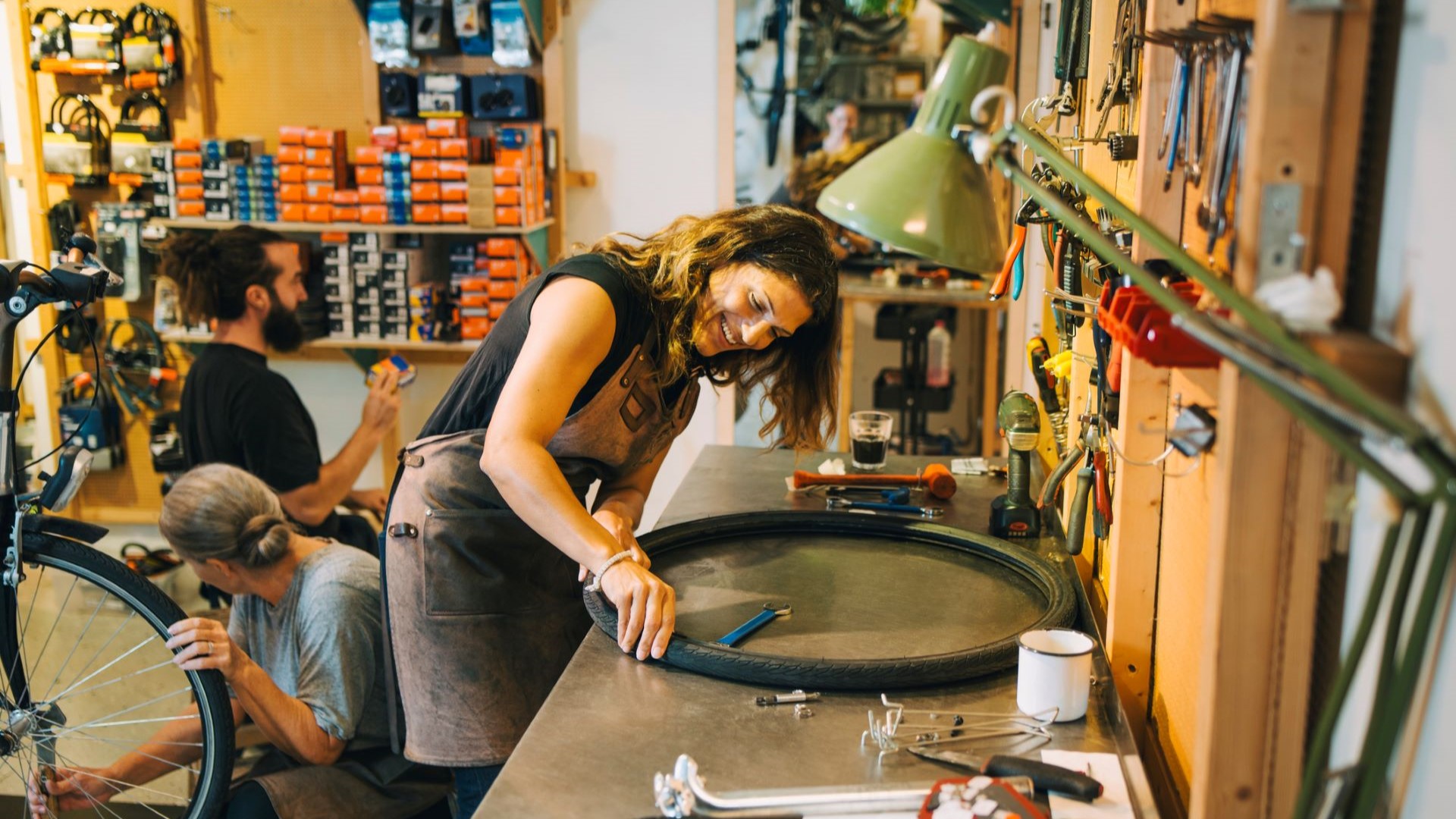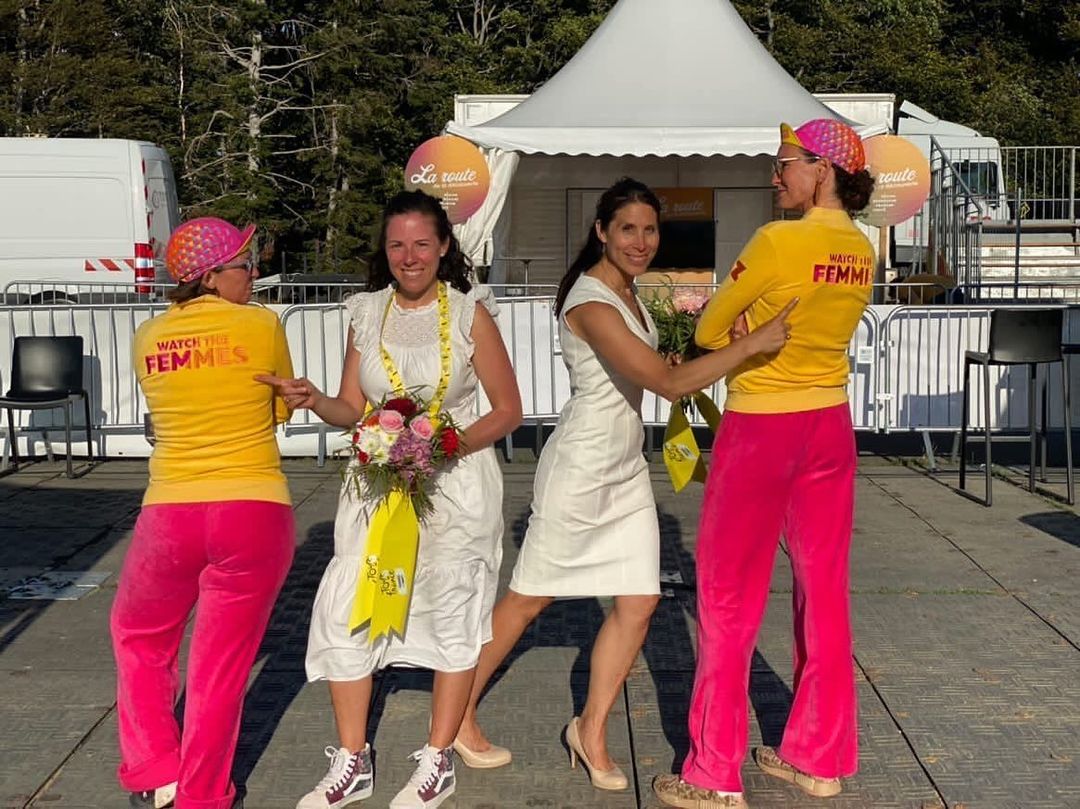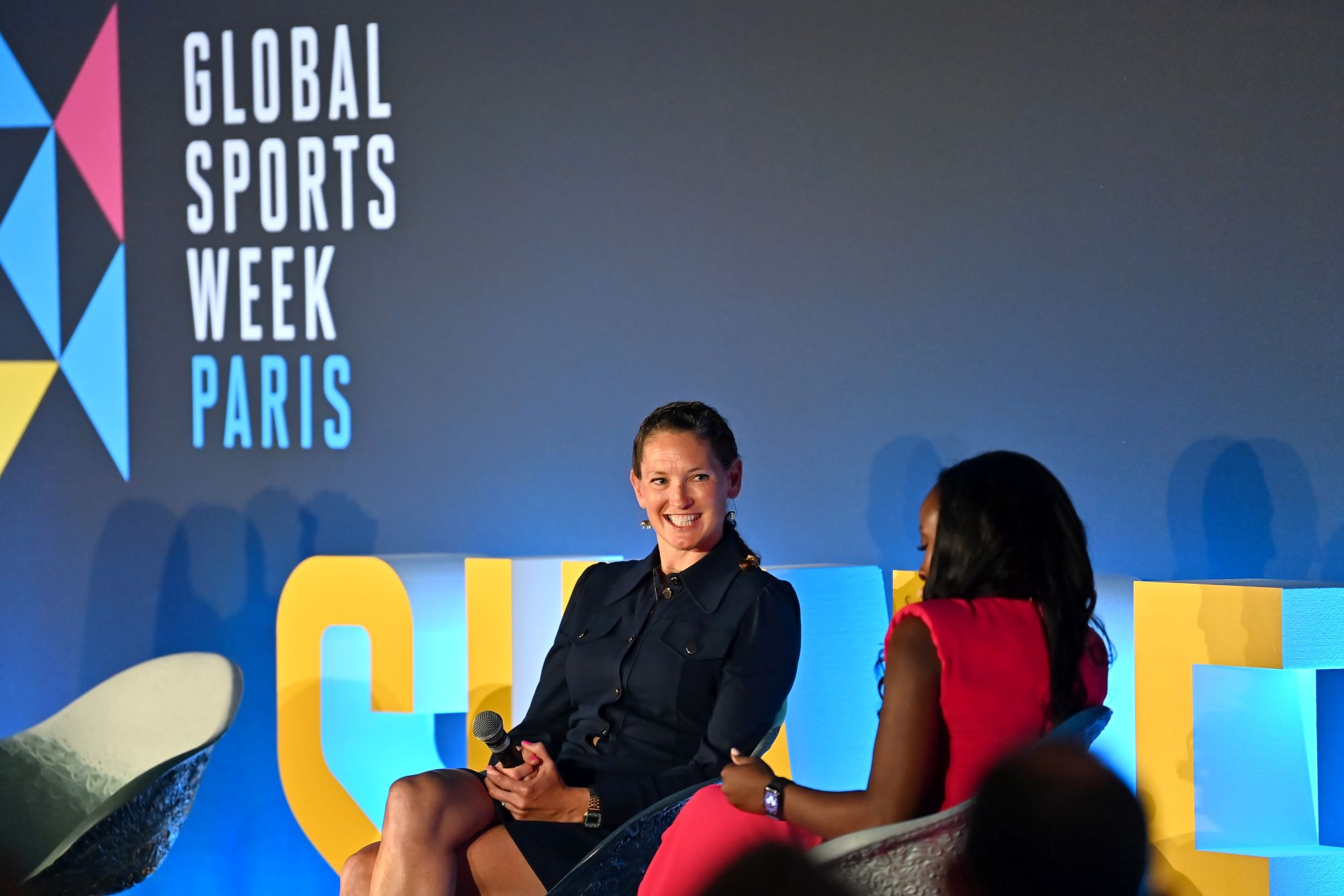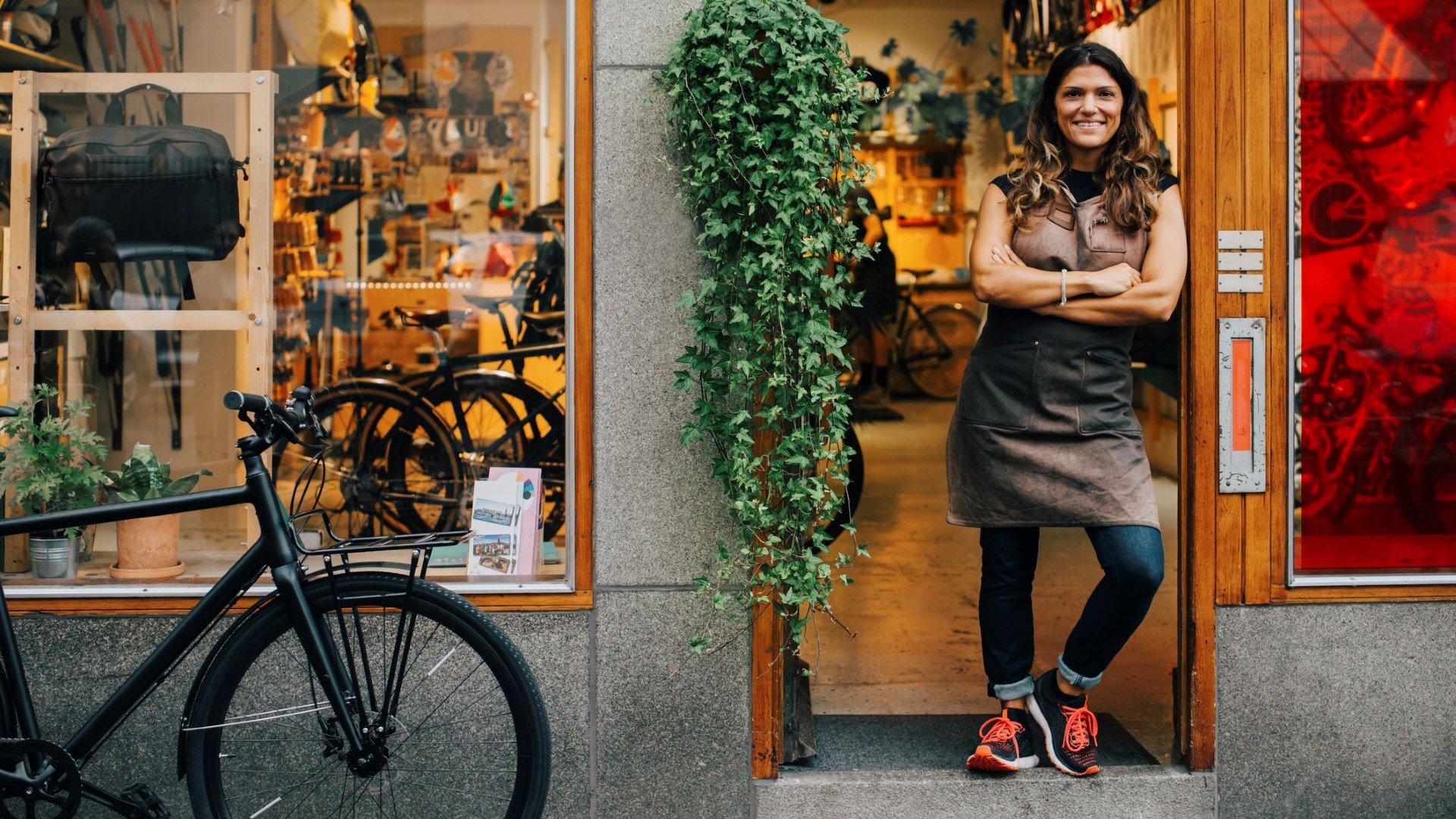
A study earlier this year painted an alarming, though perhaps unsurprising, picture of the global cycling industry. The study declared that the cycling industry is, still, made up of “overwhelmingly white, heterosexual men.”
Further, the survey uncovered that many women, people of color and members of the LGBTQ+ community had experienced harassment or degrading remarks - sometimes on a consistent basis.
We need "ongoing commitment to prioritize women in the industry and women-specific initiatives...I’d like to see the cycling industry collective make choices on where we’re going, not where we’ve been." - Cassondra Spring
"I’m not going to sugarcoat it. I want to see more women in leadership positions in the cycling industry.” - Kate Veronneau
“A diverse, inclusive industry and sport improves businesses, inspires new narrative, attracts greater participation and future-proofs our sector...When we support each other and create inclusive cultures, we all rise, which is a good lesson for the industry." - Sasha Castling
In fact, 71% of the women in the study said they were considering leaving the cycling industry, which tops other male-dominated industries such as the automotive industry, where some 40% of women said they were pondering a career change.
Can it really be that 71% of women in the cycling industry desire to leave it? With such momentum around women-specific initiatives such as the Tour de France Femmes avec Zwift, creation of new women’s teams, and recently-launched women’s cycling apparel brands like Jelenew, it appears the industry is working hard to create more balance in the cycling world, but is it all for show?

A changing industry
Despite the frustrating statistics presented in the aforementioned study, a handful of women trailblazers assure Cycling Weekly that change is afoot in global cycling – though more is needed.
“The landscape [in the industry] is certainly changing…When I first started out, there were not many [women in the industry], but now it is tremendous to witness an influx of women pushing boundaries in roles at global cycling companies in tech, editorial, digital, photography, engineering and more,” Sasha Castling, head of public relations at Ribble Cycles says.
“To witness the appointments of Ribble’s first female mechanic and showroom staff was incredible – we now have women in lots of key appointments such as operations, finance, customer service and on our company board.”
Cassondra Spring, global brand manager at Liv Cycling, agrees that the industry is changing but that there is plenty more work to be done.
To witness the appointments of Ribble’s first female mechanic and showroom staff was incredible – we now have women in lots of key appointments such as operations, finance, customer service and on our company board.
Sasha Castling
Spring estimates that at a recent industry conference, of the approximately 100 bike brand representatives in attendance, less than 20% were women.
“The women who are currently in leadership roles in the cycling industry are clearing the path for future women who want to work in this space,” Spring says. “It takes an ongoing commitment to prioritize women in the industry and women-specific initiatives, and to not immediately cut those promises when times get tough.”
Some brands such as Zwift have taken this commitment seriously, installing full-time positions such as a Director of Women’s Strategy – currently held by Kate Veronneau, a former professional cyclist.
Veronneau is responsible for heading up initiatives such as the Tour de France Femmes avec Zwift and Zwift Academy, which awards professional cycling contracts to rising stars, both male and female.
“I’m not going to sugarcoat it,” Veronneau says. “I want to see more women in leadership positions in the cycling industry.”
Beyond solely focusing on diversity in the form of hiring more women, it would behoove global bike brands to consider hiring from outside of this insular community, too.
“A diverse, inclusive industry and sport improves businesses, inspires new narrative, attracts greater participation and future-proofs our sector,” Castling says. “When we support each other and create inclusive cultures, we all rise, which is a good lesson for the industry.”
Both Spring and Veronneau agree that there has been positive change in terms of brands hiring from outside the cycling world, but now brands need to keep their promises of career growth, inclusive cultures, compensation and commitment to changing bike culture for the better.
“I’d like to see the cycling industry collective make choices on where we’re going, not where we’ve been,” Spring says.
A united front for making an impact

While much of the onus is on companies to authentically commit to hiring and supporting more women, there are programs in place to help women in the bike industry connect with each other and advocate for themselves.
Uplift is a new mentorship program created by Shift Active Media, which aims to give women in the industry access to an “exceptional network of senior female professionals who have already made an impact on the bike business,” according to Shift Active Media.
Mentors include all three women featured in this article as well as female leaders from Specialized, Cannondale, SRAM, British Cycling, BMC and Rapha.
Women in Sports Tech (WiST) is another organization whose mission is to “empower transformative growth opportunities for women and employers, from the classroom to the boardroom at the intersection of sports, technology and innovation.”
WiST holds webinars, conferences and a fellowship program – some of their online activations are free to attend, as well.
I’m not going to sugarcoat it. I want to see more women in leadership positions in the cycling industry.
Kate Veranneau
While not an official program or organization, the public has spoken about the value of investing in hiring women and promoting women’s sports.
Wasserman Media Group shared an impressive set of statistics around women’s sport earlier this year: women athletes drive twice the engagement on social media, drive fans to be 54% more aware of women athletes’ sponsors than men athletes’, and fans of women athletes are 45% more willing to consider or purchase from sponsor brands compared to men’s sports.
And still, according to Wasserman, male athletes earn 21 times more than female athletes, on average, and 90% of partnership dollars are directed to men’s sports.
The evidence that committing to elevating women in cycling to leadership positions and prioritizing female athletes is a wise choice is more than available - brands now need to authentically focus on making this a priority.
‘We need you’ - why join the industry as a woman?

All three women featured in this piece unequivocally agree that there is more work to be done when it comes to women’s equality in cycling, both internally at cycling brands and externally in supporting female cyclists.
And yet, all three said they couldn’t be more excited for the future of women in the industry.
“There has never been a better time to join the cycling industry to shape a more equitable future,” Spring says. “The world – and the industry – needs true ‘bike people,’ who love this sport and who have the intent to do things differently and to do them better than before.”
Veronneau says that she thinks women’s perspectives in cycling will be “even more valued in the next couple years,” and that the initiatives of today will only grow and become more powerful in the near future.
Interestingly, Castling, Spring and Veronneau all come from backgrounds centered around improving quality of life. Castling worked early on to create Boardman Bikes and rally stakeholders on believing in a vision for a new British team; Spring was a community organizer in the arts; and Veronneau was a marketing director for Trexlertown velodrome, making it appealing to the local community and professional teams alike.
Perhaps there is something to be said for the trope that women tend to be more collaborative and emotionally in-tune with their audience… but we have no data on that, only musings.
“Like a bicycle, life is all about going forwards,” Castling says. “So come and shape the industry with your voice as a woman - we need you to shape cycling’s visibility, vision and voice.”







